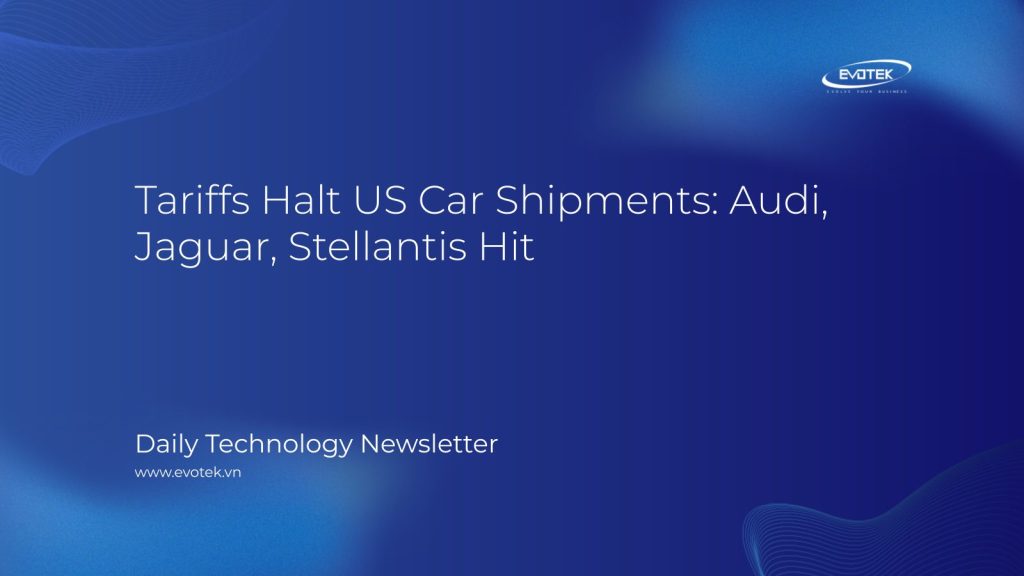A new 25% import tariff has triggered major disruptions in the automotive industry, leading Audi, Jaguar Land Rover (JLR), and Stellantis to halt shipments to the United States.
Audi Responds to Tariff Increase
Audi has temporarily suspended vehicle deliveries to U.S. ports following the tariff announcement. Approximately 37,000 vehicles are currently in U.S. inventory, expected to meet demand for about two months. Volkswagen AG, Audi’s parent company, plans to add import fees to vehicle sticker prices, increasing costs for American consumers.
Jaguar Land Rover and Stellantis Take Action
Jaguar Land Rover (JLR) has also stopped deliveries to the U.S. for April, citing the tariff change. The U.S. represents a significant portion of JLR’s global sales, accounting for nearly 100,000 units annually. Stellantis, the parent company of Chrysler and Jeep, has temporarily halted production at plants in Canada and Mexico, resulting in temporary layoffs for 900 U.S. employees.
Ferrari Increases Prices
Even luxury brands like Ferrari are affected, with the company raising prices by 10% on select models, potentially adding $50,000 to the cost of a car.
Impact on Audi’s Production
Audi may face particular challenges due to its manufacturing locations. The popular Q5 SUV, assembled in Mexico, is directly targeted by the new tariffs. In the previous year, Audi sold nearly 57,000 Q5s in the U.S., representing a significant portion of their total U.S. sales. Most other vehicles are imported from Europe.
Industry Rethinks Strategies
These developments are pushing Audi to reconsider its manufacturing and shipping strategies to maintain competitiveness against BMW and Mercedes-Benz, both of which have U.S.-based factories. These existing factories provide BMW and Mercedes-Benz a distinct advantage amidst the new tariff regulations.
Carmakers generally maintain about three months’ worth of inventory in the U.S., providing a buffer while they adapt to new logistics and pricing strategies.
European Leaders Respond
European leaders, including European Commission President Ursula von der Leyen, are discussing potential responses to the U.S. tariff plan. The European Automobile Manufacturers’ Association (ACEA) has urged reconsideration of the tariffs, citing increased prices for consumers.
Amid rising tensions, automakers are closely monitoring the situation, with potential shifts in manufacturing, price increases, and disruptions to U.S. operations. The coming months will be crucial for companies like Audi as they navigate this complex trade landscape.

 日本語
日本語 한국어
한국어 Tiếng Việt
Tiếng Việt 简体中文
简体中文